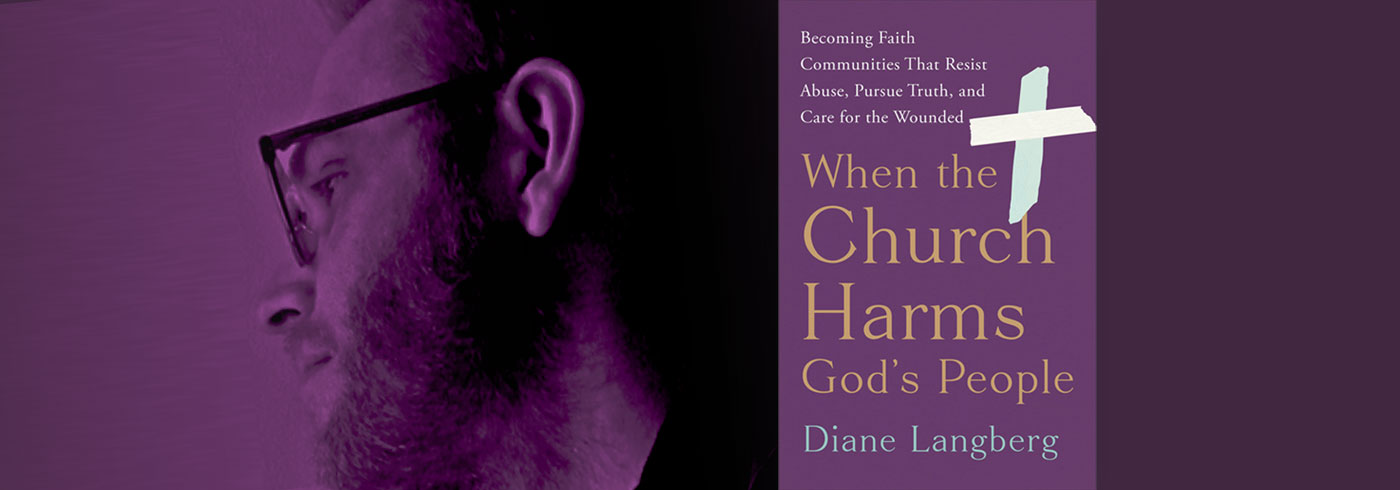Hell Below
Review of “When the Church Harms God’s People”
Diane Langberg tells the story of visiting Cape Coast Castle in Ghana on Africa’s west coast. During the centuries of trans-Atlantic slavery, countless Africans were trafficked through that outpost on their way to the New World.
Standing with Langberg’s group in the dungeon that once held enslaved males awaiting deportation, the guide pointed up and asked, “Do you know what is above the dungeon?” No one knew, so the guide said, “The chapel.”
This revelation stunned Langberg. “The people in the chapel were numb to the horrific trauma and suffering beneath them,” she writes. Her guide stated the problem more forcefully: “Heaven above; hell below.”
With this visual parable in mind, Langberg asks, “Have we not done something similar in preserving systems — our churches and Christian organizations — while the little ones and the abused are destroyed?”
Unfortunately, the answer in far too many cases is, “Yes.” One need only read the news, filled as it is with stories of church abuse, to acknowledge the truth that some shepherds have become wolves.
Langberg knows this truth up close from 50 years of clinical psychological practice helping people recover from trauma. In 2013, she co-founded Global Trauma Recovery Institute, which trains therapists to help trauma victims around the world.
A sentence at the end of Chapter 1 sums up the book’s message:
If it is true that our God came in the flesh to the brokenhearted, the small, the afflicted, the ruined, and the vulnerable, then the truth needs to be lived out in our flesh and blood — yours and mine — so that the world might know that he, full of love and justice and truth, is real.
If Jesus didn’t harm people, neither should we. If Jesus helped people, so should we.
Justice as incarnation and mission were inseparable for Jesus, so they are inseparable for the Church. Who we are and how we live work together to demonstrate the truth of our message, the gospel.
By the same token, however, if who we are and how we live do not harmonize with what we say, then our deeds cast doubt upon our words. The hypocrisy of some sectors of American Christianity explains, in part, why some Americans have left faith behind.
So, what should we do?
The answer, if I could summarize Langberg’s thesis in one word, is Christlikeness. If Jesus didn’t harm people, neither should we. If Jesus helped people, so should we.
To help readers become Christlike, Langberg examines the roles that power, culture, self-deception, and systemic deception play in generating abusive systems. She explores how repentance and forgiveness lead to healthier churches and ministries. And she speaks directly to the victims of abuse and the pastors of local churches.
As a minister reviewing this book primarily for readers who themselves are ministers, I want to conclude by focusing on Langberg’s advice to pastors. “Incarnational leadership means that the character of God is persistently manifested in our lives,” she writes.
How often do we lose sight of this truth in the busyness of our day-to-day routines? When a sermon has to be writ-ten or money raised or a hospital call made or the foyer vacuumed, it becomes all too easy to subordinate character development to the task at hand.
Worse, we sometimes use ministers’ results, such as increased attendance and giving, to tamp down questions about ministerial character, as if the fruit of ministry could be separated from its root.
Christlike leadership, Langberg maintains, requires the recognition of personal limitations, such as the kenosis of Philippians 2. It requires focusing on the state of our internal spirituality, not just our external accomplishments. It means a willingness to die to self, rather than lording power over others. And it manifests itself in a humility to wash others’ feet.
I recommend pastors and other church leaders read When the Church Harms God’s People. It is a cry of the heart from a faithful Christian who longs for churches to manifest Christlikeness and heal God’s hurting people.
BOOK REVIEWED
Diane Langberg, When the Church Harms God’s People: Becoming Faith Communities That Resist Abuse, Pursue Truth, and Care for the Wounded (Grand Rapids, MI: Brazos Press, 2024).
This article first appeared in the Winter 2025 issue of Called to Serve.
Influence Magazine & The Healthy Church Network
© 2025 Assemblies of God

